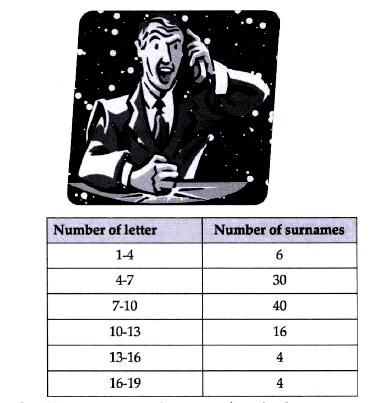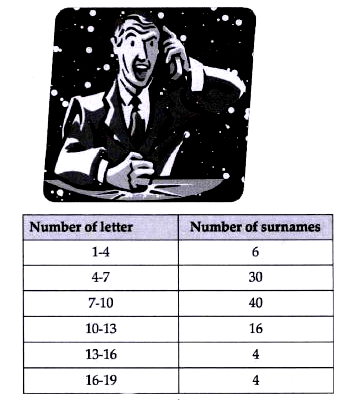Telephone operators answer the calls on telephones. A sound is easily transmitted and clearly heard over a telephone conversation if it is of high frequency
Mostly women are recruited as telephone operators because they can
do hard work
produce louder sound
produce high pitched sound
work continuously for many hours
Step-by-Step Solution:
1. Understanding Sound Transmission in Telephones:
- Sound is transmitted through telephone lines, and the clarity of the conversation depends on the frequency of the sound.
- High-frequency sounds are transmitted more effectively and are easier to hear.
2. Role of Frequency in Sound:
- Frequency is related to the pitch of the sound. Higher frequencies correspond to higher pitches.
- Women generally have higher-pitched voices compared to men, which means they produce higher frequency sounds.
3. Recruitment of Telephone Operators:
- Because women tend to have higher frequency voices, they are often recruited as telephone operators.
- Their ability to produce and perceive high-frequency sounds makes it easier for them to communicate clearly over the phone.
4. Conclusion:
- The recruitment of women as telephone operators is primarily due to their ability to transmit and hear high-frequency sounds effectively, which enhances the quality of telephone conversations.
- Sound is transmitted through telephone lines, and the clarity of the conversation depends on the frequency of the sound.
- High-frequency sounds are transmitted more effectively and are easier to hear.
- Frequency is related to the pitch of the sound. Higher frequencies correspond to higher pitches.
- Women generally have higher-pitched voices compared to men, which means they produce higher frequency sounds.
- Because women tend to have higher frequency voices, they are often recruited as telephone operators.
- Their ability to produce and perceive high-frequency sounds makes it easier for them to communicate clearly over the phone.
- The recruitment of women as telephone operators is primarily due to their ability to transmit and hear high-frequency sounds effectively, which enhances the quality of telephone conversations.
Topper's Solved these Questions
- SOUNDBOOK - BEIITIANSCHAPTER - SOUNDEXERCISE - IIT JEE Worksheet (I. Single Correct Answer Type)
10 Videos
- SOUNDBOOK - BEIITIANSCHAPTER - SOUNDEXERCISE - IIT JEE Worksheet (II. Multiple Correct Answer Type)
5 Videos
- SOUNDBOOK - BEIITIANSCHAPTER - SOUNDEXERCISE - Summative Worksheet
10 Videos
- MOTIONBOOK - BEIITIANSCHAPTER - MOTIONEXERCISE - IIT JEE WORKSHEET (MATIRX MATCHING)
1 Videos
- WIND, STROM AND CYCLONESBOOK - BEIITIANSCHAPTER - WIND, STROM AND CYCLONESEXERCISE - IIT JEE Worksheet (II. Multiple Correct Answer Type)
1 Videos
Similar Questions
Read the following text and answer the following question on the basis of the same.
100 surnames were randomly picked up from a local telephone directory and the frequency distribution of the number of letters in the English alphabets in the surnames was obtained as follows:

Cumulative frequency of modian class:
View SolutionRead the following text and answer the following question on the basis of the same.
100 surnames were randomly picked up from a local telephone directory and the frequency distribution of the number of letters in the English alphabets in the surnames was obtained as follows:

Determine the median number of letters in the surnames.
View Solution
Knowledge Check
In these questions, sentences are given with blanks to be filled in with an appropriate word(s). Four alternatives are suggested for each question. Choose the correct alternative out of the four alternatives.
We have two telephone operators, _____ of them do you want?AwhoBwhomCwhichDwhatWe have two telephone operators, ........of them do you want?
AwhoBwhomCwhichDwhatThe mobile telephones operate typically in the range of
A1-100 MHzB100-200 MHzC1000-2000 MHzD800-950 MHz
I grew up in an India in which telephones were both rare and virtually useless. When I left India in 1975 to go to the US for graduate studies, we had perphaps 600 million residents in the country and just two million land line telephones . Having a telephone was a rare privilege , if you weren't an important goverment official. or a doctor , or a journalist you might languish in a lonk waiting list and never receive a phone.
Telephones were such a rarity (after all, 90% of the population had no access to a telephone line) that elected members of parliament has amongest their privileges the right to allocate 15 telephone connections to whomever they seemed worthy.
And it you did have a phone, it wasn't necessarily a blessing . I spent my high school years in calcutta, and I remember that if you picked up your phone, you had no guarantee you would reach the number you had dialed. Somtimes you were connected to someone else's ongoing conversation , any they had no idea you were able to hear them: there was even a technical term for it, the 'crossconnection' (appropiately , since these were connections that made us very cross) . If you wanted to call another city, say Delhi, you had to book a 'trunk call' in the morning and then sit by the telephone all day waiting for it to come through : or you could pay eight times the going rate for a lightning call : - but even lightning struck slowly in India in those days, so it only took half an hour instead of the usual three or four or more to be connected.
(1) Why were telephones a rarity before 1975 ?
View SolutionI grew up in an India in which telephones were both rare and virtually useless. When I left India in 1975 to go to the US for graduate studies, we had perphaps 600 million residents in the country and just two million land line telephones . Having a telephone was a rare privilege , if you weren't an important goverment official. or a doctor , or a journalist you might languish in a lonk waiting list and never receive a phone.
Telephones were such a rarity (after all, 90% of the population had no access to a telephone line) that elected members of parliament has amongest their privileges the right to allocate 15 telephone connections to whomever they seemed worthy.
And it you did have a phone, it wasn't necessarily a blessing . I spent my high school years in calcutta, and I remember that if you picked up your phone, you had no guarantee you would reach the number you had dialed. Somtimes you were connected to someone else's ongoing conversation , any they had no idea you were able to hear them: there was even a technical term for it, the 'crossconnection' (appropiately , since these were connections that made us very cross) . If you wanted to call another city, say Delhi, you had to book a 'trunk call' in the morning and then sit by the telephone all day waiting for it to come through : or you could pay eight times the going rate for a lightning call : - but even lightning struck slowly in India in those days, so it only took half an hour instead of the usual three or four or more to be connected.
How did the author differentiate between a 'trunk call' and a lightning call' ?
View SolutionI grew up in an India in which telephones were both rare and virtually useless. When I left India in 1975 to go to the US for graduate studies, we had perphaps 600 million residents in the country and just two million land line telephones . Having a telephone was a rare privilege , if you weren't an important goverment official. or a doctor , or a journalist you might languish in a lonk waiting list and never receive a phone.
Telephones were such a rarity (after all, 90% of the population had no access to a telephone line) that elected members of parliament has amongest their privileges the right to allocate 15 telephone connections to whomever they seemed worthy.
And it you did have a phone, it wasn't necessarily a blessing . I spent my high school years in calcutta, and I remember that if you picked up your phone, you had no guarantee you would reach the number you had dialed. Somtimes you were connected to someone else's ongoing conversation , any they had no idea you were able to hear them: there was even a technical term for it, the 'crossconnection' (appropiately , since these were connections that made us very cross) . If you wanted to call another city, say Delhi, you had to book a 'trunk call' in the morning and then sit by the telephone all day waiting for it to come through : or you could pay eight times the going rate for a lightning call : - but even lightning struck slowly in India in those days, so it only took half an hour instead of the usual three or four or more to be connected.
Do you think the cellphone has made us global ?
View SolutionTechnology used to provide internet by transmitting data over wires of telephone network is?
View SolutionA telephone link operating at a center frequency of 10GHz is etablished. If 1% of this is a available then how many telephone channel can be simultaneously given when each telephone covering a band width of 5kHz?
View Solution
